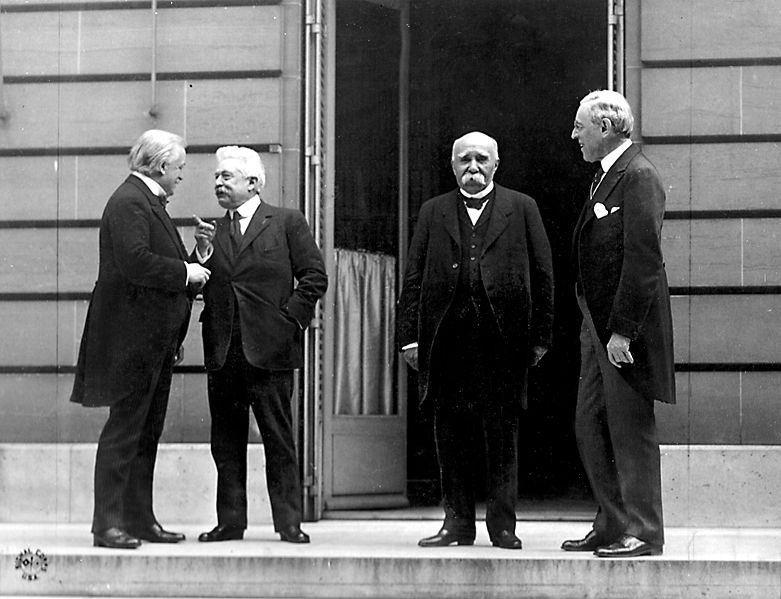Prior to Wilson's arrival in Europe, no American President had ever visited Europe while in office. Wilson's Fourteen Points, of a year earlier, had helped win the hearts and minds of many as the war ended; these included Americans and Europeans generally, as well as Germany, its allies and the former subjects of the Ottoman Empire specifically. Wilson's diplomacy and his Fourteen Points had essentially established the conditions for the armistices that had brought an end to World War I. Wilson felt it was his duty and obligation to the people of the world to be a prominent figure at the peace negotiations. High hopes and expectations were placed on him to deliver what he had promised for the post-war era. In doing so, Wilson ultimately began to lead the foreign policy of the United States toward interventionism, a move strongly resisted in some domestic circles.
Once Wilson arrived, however, he found "rivalries, and conflicting claims previously submerged". He worked mostly trying to sway the direction that the French (George Clemenceau) and British (Lloyd George) delegations were taking towards Germany and its allies in Europe, as well as the former Ottoman lands in the Middle East. Wilson's attempts to gain acceptance of his Fourteen Points ultimately failed, after France and Britain refused to adopt some specific points and its core principles.
In Europe, several of his Fourteen Points conflicted with the other powers. The United States did not encourage nor believe that the responsibility for the war that Article 231 placed on Germany was fair or warranted. It would not be until 1921 that the United States finally signed separate peace treaties with Germany, Austria and Hungary.
In the Middle East, negotiations were complicated by competing aims, claims, and the new mandate system. The United States hoped to establish a more liberal and diplomatic world, as stated in the Fourteen Points, where democracy, sovereignty, liberty and self-determination would be respected. France and Britain, on the other hand, already controlled empires, wielded power over their subjects around the world, and still aspired to be dominant colonial powers.




 RSS Feed
RSS Feed